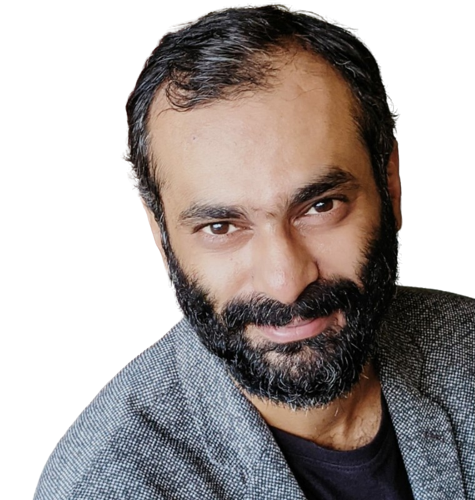<p>When you're in court for arbitration, a hearing for patent cases, a dispute case, or a regulatory action against your company, you probably need an expert witness to help your case.</p><p><img src="https://kradminasset.s3.ap-south-1.amazonaws.com/KR+Blogs/Expert+witness/Expert+witness+Banner.png" /></p><p>If you choose the correct expert witness, their testimony may be a deciding factor in the proceedings or have a significant impact on influencing the outcome. Expert witness testimonies complement evidence and eyewitness accounts in most high-stakes legal battles.</p><p class="bbox"><em>Knowing how to use an expert witness in your case is extremely important. Just as an expert witness’s testimony can turn the tide in your favor, recruiting the wrong expert for a particular case could just as quickly spell disaster. </em></p><p>But what should you consider when selecting an expert witness? In this article, we’ll discuss the best practices for hiring an expert witness, including what to look for, the questions you should be asking, and how to find the best expert witness.</p><h2><span style="font-size: 14pt;">Best Practices for Hiring an Expert Witness</span></h2><p>To mitigate the risks of your expert’s testimony backfiring, there are a few things you should stay aware of.</p><h3><span style="font-size: 12pt;"><strong>1. Understand the Expert Witness’s Scope of Work</strong></span></h3><p>An expert witness’s work includes scrutinizing the evidence, writing reports, being deposed, and ultimately offering testimony in court. However, the amount of work involved, and the time it will take to complete, can vary widely from case to case.</p><p>Before committing to a particular expert, provide a clear definition of your expectations and a detailed description of all relevant factors. And to avoid surprises later, once you've agreed on the scope of work, it's critical to write what the expert witnesses will charge for their services.</p><h3><span style="font-size: 12pt;"><strong>2. Transparency and Preparation are Key </strong></span></h3><p>Legal teams must disclose all relevant information about the case to their expert witness to prevent any uncertainty during questioning. An expert witness may be left confused by the opposing counsel's line of questioning, but a misinformed expert will not be able to deliver the value you expect.</p><h3><span style="font-size: 12pt;"><strong>3. Anticipate Opposing Counsel to Discredit Your Expert Witness</strong></span></h3><p>Opposing counsel's job is to make your expert's testimony seem irrelevant, and they will hope to achieve this by attempting to discredit your expert witness. Get the right expert by selecting a professional with the appropriate qualifications and credibility/authority in their field.</p><p>Consider an expert with past courtroom experiences and contact attorneys they have worked with to ensure they can handle the high-pressure courtroom environment. It’s best to select an expert with ample trial experience, so they won’t be caught off guard by opposing counsel’s tactics.</p><p><img src="https://kradminasset.s3.ap-south-1.amazonaws.com/KR+Blogs/Expert+witness/6+things+for+expert+witness.png" /></p><h3><span style="font-size: 12pt;"><strong>4. Being Questioned on the Witness Stand Is Challenging</strong></span></h3><p>Your expert witness must be prepared for anything opposing counsel can throw at them, including questioning their expertise. Standing up to stern and rigorous questioning is only possible if they are specialists in their field and are not flustered while on the stand.</p><p>While an expert witness may share a favorable opinion after reviewing the case, they must also have the conviction and experience to hold their ground under relentless questioning and cross-examination.</p><h3><span style="font-size: 12pt;"><strong>5. Expert Witnesses Can Alter Their Viewpoint Mid-Trial</strong></span></h3><p>While it doesn’t happen very often, opposing counsel could apply enough pressure and ask just the right questions during their cross-examination to sway the expert witness’s opinion.</p><p>An expert changing their opinion on the record in this manner can damage your case irrecoverably, leaving you with settling the case as your only option.</p><h3><span style="font-size: 12pt;"><strong>6. Trust Your Instincts When Hiring an Expert</strong></span></h3><p>An expert's final selection typically necessitates assessing a wide range of variables. These include personality traits, perceived credibility, financial considerations, approach to the case, prior testimonies, publications, and speaking engagements.</p><p>You would also need to consider their academic and professional qualifications, specific relevant experience, certifications, and communication skills. Weighing each of these factors can be an arduous task, so it is advisable to highlight at least three differentiating aspects to help you choose one expert over others and trust your instincts to make the right decision.</p><h2><span style="font-size: 14pt;">Why Should You Choose Knowledge Ridge for Expert Witnesses?</span></h2><p>An authoritative and knowledgeable expert witness can assist you in building a case. Making the appropriate choice when selecting an expert witness is crucial to a successful engagement.</p><p>When preparing for your case, you'll want to have as much faith in your attorney's and expert witness' abilities as possible.</p><p class="bbox"><em>Many lawyers and organizations contact Knowledge Ridge to consult with our elite network of 353,000+ </em><a href="https://www.knowledgeridge.com/Knowledge-RidgeExperts"><em>subject matter experts</em></a><em> from various industries and verticals who frequently act as expert witnesses.</em></p><p>For help selecting experienced expert witnesses for your case, schedule a time to talk to us or <a href="https://www.knowledgeridge.com/Knowledge-Ridge-Contact">click here to submit a request</a>.</p><h3>Frequently Asked Questions</h3><h3><span style="font-size: 12pt;"><strong>What Criteria Might Be Used to Establish Someone as an Expert Witness?</strong></span></h3><p>The criterion for selecting a suitable expert witness goes beyond their specific area of expertise and academic or professional qualifications to include their demeanor, credibility, courtroom experience, and communication skills.</p><h3><span style="font-size: 12pt;"><strong>How to Cross-Examine an Expert Witness?</strong></span></h3><p>Cross-examining an expert witness can be tricky since they probably have much more experience and knowledge of the subject matter than the attorney questioning them. Legal teams must be prepared to try and poke holes in the expert report, ask closed-ended questions, highlight, and attack the expert's potential biases and qualifications, and call out assumptions to discredit them to the court and jury.</p><h3><span style="font-size: 12pt;"><strong>What Is the Difference Between a Lay Witness and an Expert Witness?</strong></span></h3><p>A lay witness can only testify about firsthand personal knowledge, including what they saw, heard, or did. On the other hand, expert witnesses present their opinion based on specialized skills and experience in a particular field.</p>








 350+
350+